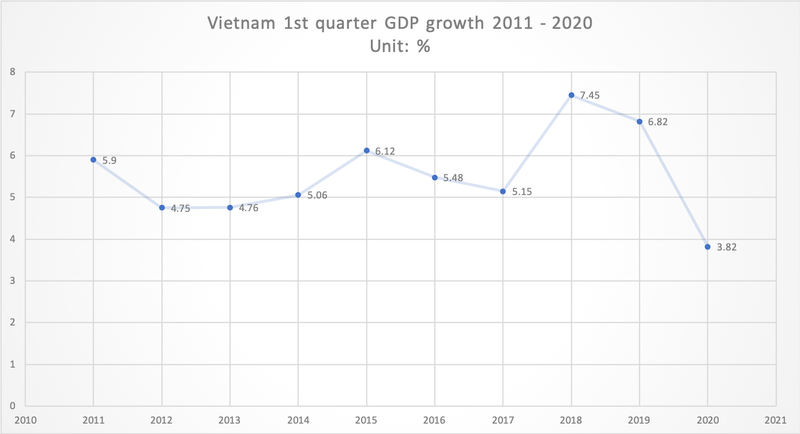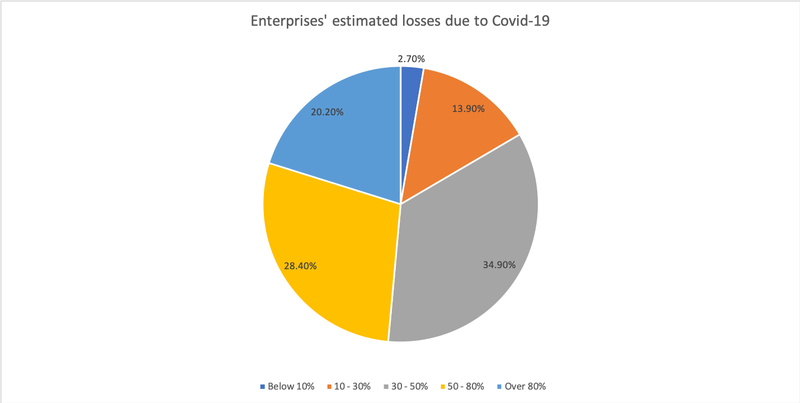Maintaining GDP growth should not be Vietnam’s priority now: Fulbright lecturer
Vietnam could pay a costly price if the government decides to end anti-virus measures prematurely to save a few percentage points of GDP growth, said an expert.
Maintaining a positive GDP growth rate should not be Vietnam’s priority at this moment, as the ultimate goal is to protect the well-being of key economic components, including the people, enterprises, the banking – finance system and public trust, said Vu Thanh Tu Anh, dean of Fulbright School of Public Policy Management, Fulbright University Vietnam.
| Vu Thanh Tu Anh, director of the Fulbright Economics Teaching Program. Source: Fulbright. |
All these factors would help lay the foundation for Vietnam to recover from the current crisis, Anh said at an online conference on April 6.
With a small-sized economy and a high level of economic openness, it is not a surprise that Vietnam is highly susceptible to external shocks.
Moreover, the lack of development of supporting industries forced the domestic manufacturing and processing to source input materials from abroad, Anh said, adding when the pandemic causes a disruption to global supply chains, the majority of manufacturers are struggling with shortage of materials.
| Data: GSO. Chart: Nguyen Tung. |
In addition to a 10-year low GDP growth of 3.82% in the first quarter, both industrial production and retail consumption suffered a plunge in growth.
Export growth recorded the all-time low of 0.5%, while import reverted to a contraction of nearly 2%, indicating companies are left with depleted input materials.
Anh predicted export growth in the second quarter may even lower when the world's major economies, Vietnam’s key export markets, feel deeper impacts of the pandemic.
| Data: National Economics University - Hanoi. Chart: Nguyen Tung. |
“Without timely and effective intervention from the government, some economic sectors and enterprises may collapse, resulting in severe consequences for growth, jobs and social issues,” Anh warned.
During this context, Anh urged the government to mobilize all resources to prevent the health crisis from turning into an economic crisis. In that case, an economic recession is inevitable, Anh added.
Vietnam could pay a costly price if the government decides to end anti-virus measures prematurely to save a few percentage points of GDP growth, Anh urged.
Public trust is key in every move
Anh recommended current supporting policies should take into consideration long-term benefits, which could ensure a speedy recovery and healthy development of the economy in the post-pandemic period.
In terms of fiscal policies, Anh said the government should prioritize public spending on healthcare and the fight against the pandemic, as failure in this aspect could no doubt lead to an economic shock.
Anh urged more government spending on social welfare and essential services to ensure social stability, particularly as the poor and near-poor are highly dependence on such support.
Meanwhile, it is essential to support liquidity for commercial banks, which in turn are providing support for enterprises hurt by the pandemic.
Anh noted Vietnam could be more flexible in managing the exchange rate policy in a move to maintain export advantages, like other countries have done.
While the government should allocate a part of state capital for developing a Covid-19 vaccine, instead of waiting for others, public investment policies should aim at a dual target of stimulating the economy and nurturing recovery capability.
Fields such as IT, renewable energy, major infrastructure development projects, e-payment, and e-commerce should be of government priorities.
Anh, however, said public trust is of utmost importance in every government’s moves and play a key part for the success of macro policies.
One of the top priorities of the government is to prove that the government has acted appropriately and timely for the benefits of the people and enterprises.
With that in mind, once this crisis ends, the government could expect greater effects in any future policies, Anh concluded.














